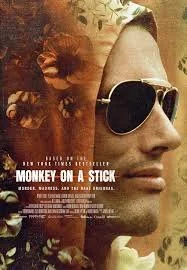Meet Joe Szimhart
Joe Szimhart is a seasoned cult intervention specialist, educator, and consultant with over four decades of experience in the field of cultic studies and recovery from coercive influence. His expertise developed following firsthand exposure to high-demand and overvalued spiritual movements into the early 1980s, including groups rooted in Theosophy and its various offshoots. That experience catalyzed a critical re-engagement with scientific skepticism and religious studies. His efforts led to a lifelong commitment to helping individuals and families impacted by harmful cultic dynamics.
Cult is not the name of the problem. The problems arise when behavior in a group or relationship forms an autocratic and deceptive self-sealing social system.
From 1985 to 1992, Szimhart chaired and lectured for an interdenominational cult and occult awareness group based in Santa Fe, New Mexico. In 1986, he began working professionally as a cult interventionist, providing consultation and exit counseling services across the United States and internationally. His work has included lectures, private interventions, educational outreach, and collaboration with clinicians, legal professionals, and advocacy organizations. He has lectured for a wide variety of organizarions including schools, universities, police departments, Native American tribes, churches, esoteric groups, skeptics groups, sociology conferences, and Mensa gatherings.
Szimhart’s contributions to the field extend to public education through writing, media appearances, and conference presentations. He has served as a trusted resource for families navigating the complex psychological, relational, and legal challenges associated with harmful cult involvement. In recognition of his impact, he received the Lifetime Achievement Award from the International Cultic Studies Association in 2016.
His professional experience includes 27 years working for a psychiatric emergency hospital in PA where he helped to manage the crisis intake department. He is a certified 988 National Suicide Hotline counselor. He also worked as a PrimaryTherapist at a substance use rehab in PA.
Currently, Joe remains active in the field, focusing on selected intervention cases, educational projects, and ongoing consultation. His work is grounded in ethical practice, critical inquiry, and a deep understanding of the psychological mechanisms underlying undue influence.
Memoir: Santa Fe, Bill Tate, and me: How an artist became a cult interventionist
Novel: Mushroom Satori: The cult diary by Joe Szimhart (2013)
Lectures: One example at Penn State, Berks Campus.
As a cult behavior consultant, Joe Szimhart is regustered in New Mexico under Free Your Way, LLC
https://www.bizapedia.com/nm/free-your-way-llc.html
Interview with Joe Szimhart on “A Little Bit Culty” October 2025 [audio]
https://alittlebitculty.com/episode/inside-cult-intervention-lessons-from-joe-szimhart-part-1
https://alittlebitculty.com/episode/inside-cult-intervention-lessons-from-joe-szimhart-part-2
Szimhart appeared in 2024 as an expert commentator in the award winning documentary based on the book, Monkey on a Stick.
In 1991, Details ran a 5,000-word feature aggressively titled “The New Age Exorcist” about my intervention work by the successful novelist and writer Michael “Mick” Disend, himself an ex-member of an abusive Zen Buddhist cult in Rochester, NY that he was in for eight years. Over many months Mick encountered and observed several of my cases—all non-coercive.
Details editors would not publish the story unless Mick saw something that required “security” to keep a cult member in a house while they talked with me. We finally got a semblance of that when a young man’s sister insisted that her body-builder friends from her gym be present so her brother would not flee right away after she introduced him to me in her home.
The article does not clearly state that it took me all of fifteen minutes to get the young man to talk to me voluntarily, so “security” amounted to curious friends who came and went at will with the young man’s permission. The young man chose to leave the cult called The Masterpath, an Eckankar offshoot, on the third day.
Deprogramming like cult demands context scrutiny before deciding what the word indicates. This Details feature is an example of how media can skew meaning.
I have never been an “exorcist,” although I have participated twice in the minor rite of exorcism that two of my clients requested from a priest.
3 mottos






